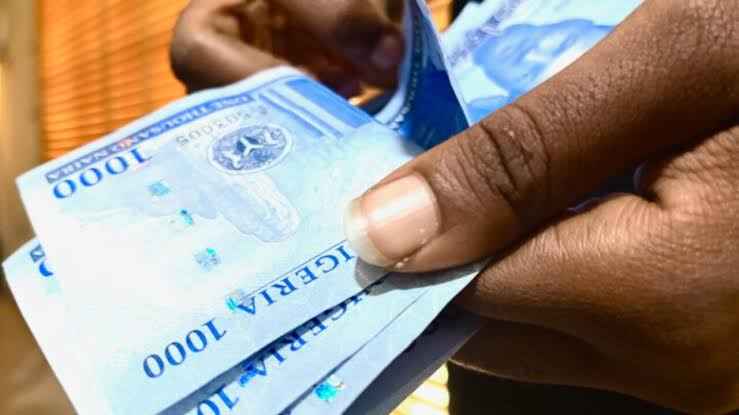Headline
FG disburses N300b to over 8 million households

The Federal Government has disbursed over ₦300 billion to more than 8.1 million households across Nigeria through the Conditional Cash Transfer (CCT) programme.
Minister of State for Humanitarian Affairs and Poverty Reduction, Dr. Yusuf Sununu, made this known on Monday during a roundtable event held in Abuja to commemorate the 2025 International Day for Disaster Risk Reduction.
“As a ministry, under the Hope Agenda of Mr. President, the Ministry has, through the National Social Investment Agency, has done very well in improving the resilience of the local community. As of today, in terms of conditional cash transfer, over 8.1 million households in Nigeria have been reached with a total sum of over 300 and something billion naira. This has really improved their capacity, improved their health, and education, and the process will continue,” Sanunu said.
He also hinted that the 21,000 Nigerians affected by flood disasters across the country are to benefit from the government’s interest-free loan totalling ₦6.3 billion.
“We also are planning, together with both national and state level, to improve on our flood mitigating effect by dolling out, in the next few weeks to come, to 21,000 Nigerians free interest, and also free collateral loan of over 300,000 Naira each. This is to address the issue of crisis in farming so as to mitigate the interest of flooding in Nigeria,” he said.
The Minister further disclosed efforts to empower displaced persons through a scheme that will provide a ready market for their products.
“Already, we have planted a program in collaboration with Federal Minister of Agriculture in addressing the food security of internally displaced persons through the collaboration with internally displaced persons in their camp and host community, the formula of giving the internally displaced person 30% of the produce produced by the internally displaced persons, and the government will off-take 70% and the money will be given to the internally displaced persons that participated in the scheme as a cash component,” he said.
Speaking earlier, the Director General of the National Emergency Management Agency, Zubaida Umar, said Nigeria, like many nations, continues to experience increasing frequency and intensity of disasters driven by climate change, conflicts, pandemics, and technological risks.
According to her, these events are testing the limits of traditional emergency response systems and demanding a more proactive, preventive, and well-financed disaster risk management framework.
Zubaida underscored the need to collectively rethink how to fund resilience; to move from reactive, ad-hoc funding of disasters to a multi-stakeholder financing architecture that supports prevention, preparedness, and sustainable recovery.
“Your Excellency, this Roundtable also provides the platform for the official launch of two (2) landmark policy instruments that will guide our collective efforts in the years ahead: The NEMA Strategy Plan (2025–2029); The National Disaster Risk Reduction Strategy (2025–2030). These frameworks are anchored on risk-informed development, innovation in financing, and stronger institutional collaboration, ensuring that disaster risk management becomes an integral part of planning across all sectors.
“As we discuss today, our focus will extend beyond emergency management institutions. Resilience must be mainstreamed across sectors from agriculture, water resources, energy, and infrastructure to finance, education, and health.
“In this regard, NEMA is already working with key stakeholders to develop a National Risk Monitoring and Information Platform that will serve as a cross-sectoral system for early warning, vulnerability mapping, and risk-informed investment decisions.
Equally important is the dialogue around innovative financing, exploring instruments such as catastrophe bonds, insurance pools, climate funds, and blended finance models that can sustain risk reduction efforts at scale,” she explained.
The event had in attendance Vice President Kashim Shettima, the Deputy Speaker of the House of Representatives, Benjamin Kalu, Governor Dauda Lawal of Zamfara State, lawmakers and international partners among others.





















